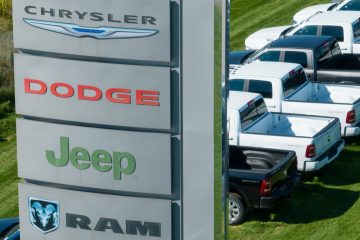It’s likely that during your quest to find a vehicle, you’ll come across two options that are nearly identical, be it by model, make, or style. In this instance you’ll need to refer to your used car comparison checklist in order to walk away knowing that you’ve chosen well.
What’s that? You haven’t made a used car comparison checklist?! Are you actively trying to throw money away? No? Ok, then you’d better familiarize yourself with the following, because if you don’t, you won’t be making a fully informed decision, and that doesn’t end well for anybody. A basic checklist can be applied to any vehicle under consideration, but there are additional guidelines to you can follow to make a specialized adaptable checklist that is more useful when comparing two similar vehicles.
What are these guidelines I speak of? Think of them as the addendums to the checklist you already have in place. If you don’t already have a basic checklist, you can refer to ours for a refresher on how to get the best deal on a used car, which should always be your ultimate goal. Only by getting the best deal on a used car will you maximize its value, and attempting to do this any other way will only lead you down a fiscally irresponsible path. You don’t want to be on that path do you?
Number One: Bring In The Experts
This is the first, and perhaps most important guideline to follow. All vehicles under consideration must be looked at by a mechanic who specializes in the brand. It’s not enough to have a good mechanic check out both vehicles, you need someone who knows all the intricacies of them. Often times buyers will find two quality options for a vehicle from the same era, but different model years. You’ll want to have the vehicles inspected by someone who knows what the year to year, sometimes even month to month changes in the vehicles were. This could end up being the difference driving off with a great deal, or a money pit.
For example, when I bought a Audi S4 Avant, I did so with confidence because I knew the manufacture date, and I knew that date fell after the period in which the majority of the problematic vehicles were built. Had I not gotten this information from an expert, I would have gone with a slightly cheaper option that I had my eye on. In the long run this saved me a bunch of money upfront, and helped me make a profit when I sold the vehicle, because the buyer knew that the cars built after a certain date were more valuable.
Number Two: Know The Story
The second guideline relates to the first in that a specialist would be helpful in determining how much it should factor into your buying decision. You can tell a-lot about a person based on the condition of their vehicle, and that should absolutely come into play when comparing vehicles. Say you’ve got two solid examples of the same car, one has significantly higher miles than the other, but the lower mileage one looks to be in rougher condition, which one is a better deal?
If you know the ownership history, you’ll be able to determine if that low mileage model has been treated poorly long term, or if the most recent owner is guilty of failing to keep it tip-top. If it should be the latter, dig into what might be wrong with the vehicle currently, and what reason the owner has for allowing it to be in that condition. If they have parts they’re willing to include with the sale, and check with a specialist to see what having the parts installed would cost, or better yet, if you can do it yourself, you may be getting a better deal with rougher option. Of course if the higher mileage example has had only one owner, and it’s in great condition, that’s always the better deal.
Number Three: Lay It All On The Table
If I was an infomercial spokesperson I’d boast about this final guideline being the “foundation of the triangle of power” or something like that. Thankfully I’m not a late night huckster, so I’ll just lay it out plain and simple, you must be ruthless. A good used car buying checklist covers everything from having the vehicle inspected, to knowing the market value of the car, to having your budget planned ahead of time. But nothing on the checklist is of any use to you if you’re not being 100% honest with the seller, as well as with yourself. If you’re not ready to pull the trigger, you should tell the seller as much, that way you’re not wasting their time, or your own by having them go into a whole sales pitch when all you want to do is get some information.
On the flip side, you need to be equally honest with yourself as you are with the seller. What are your reasons for looking at this particular vehicle? Are you after it as an investment, or are you planning to drive it regularly? Are you really in a financial position to buy it, or are you going to burden yourself with the purchase? Is it a vehicle you’ve been considering for a long time, or have you been “sold” the vehicle by friends, advertisements, or other outside influences? If you can answer these questions with total certainty, you’ll be doing yourself a great service, and surely saving money in the process.
(Article continues below)






